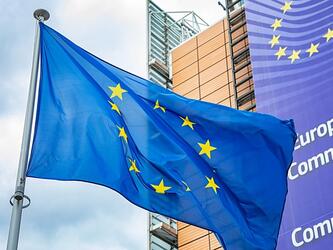Draft profiling restrictions no risk to research, says Esomar
Esomar said it had been informed by the Council of Europe that the use of profiling techniques for sampling purposes are not covered by the proposals, which were made as a recommendation to its member states and which seek to prevent companies or organisations from unfairly discriminating against people based on automated analysis of personal or behavioural data.
Esomar and Efamro, the European Federation of Associations of Market Research Organisations, raised their concerns about the draft restrictions in a joint submission to the European Commission in July. They were particularly concerned that the definition of profiling was writ so broad “that many research activities would be included”.
According to their submission: “Article 15 of Directive 95/46/EC provides that Member States shall grant the right to every person not to be subject to a decision which produces legal effects concerning him or significantly affects him and which is based solely on automated processing of data intended to evaluate certain personal aspects relating to him, such as his performance at work, creditworthiness, reliability, conduct, etc.
“We would urge the commission to not restrict profiling for purposes such as market, social and opinion research, which do not produce legal effects concerning data subjects or significantly affect data subjects,” said Esomar and Efamro. “If the commission decides to introduce profiling restrictions, the definition of profiling used should make clear that commercial profiling activities are being restricted, not other legitimate profiling activities such as research.”
In a statement released this week, Esomar said it had previously received an indication from the Council of Europe that sampling and surveys would fall outside the scope of the profiling restrictions. The council has since confirmed that “the collection and processing of personal data with a view to setting up a sample or the collection and processing of personal data for statistical surveys or for the production of statistical results are not covered by the draft recommendation on profiling”.
Esomar notes that while Council of Europe recommendations are not legally binding, they do have “strong influence” on legislation introduced within European Union member states.

We hope you enjoyed this article.
Research Live is published by MRS.
The Market Research Society (MRS) exists to promote and protect the research sector, showcasing how research delivers impact for businesses and government.
Members of MRS enjoy many benefits including tailoured policy guidance, discounts on training and conferences, and access to member-only content.
For example, there's an archive of winning case studies from over a decade of MRS Awards.
Find out more about the benefits of joining MRS here.













1 Comment
Erika Harriford-McLaren
16 years ago
Thank you for highlighting the efforts of the ESOMAR Public Affairs team. As your article states, we have been active in the past year in protecting the interest of the MR industry, however it might be useful for readers to clarify that ESOMAR has undertaken two separate public affairs actions in recent months. One action was a dialogue between ESOMAR with the Council of Europe, based in Strasbourg and independent of the EU institutional framework. The Council of Europe has 47 member states and is currently preparing a draft recommendation to regulate the profiling of individuals. ESOMAR has recently received clarification from the Council of Europe that this draft recommendation on profiling shall not be applicable to market, social and opinion research, which will mean less regulatory burden for researchers. The other recent ESOMAR action, separate to our work with the Council of Europe, is a joint initiative with EFAMRO and concerns the positioning of market, social and opinion research in the current review of the EU Data Protection Directive, a legislative text dating from 1995. This initiative is being undertaken with the European Commission, based in Brussels. The Commission is the executive arm of the EU institutions with the responsibility to draft proposals for new European Union laws and has recently come under pressure from consumer groups and privacy advocates to revise its current data protection legislation. This pressure includes calls to include stricter rules on obtaining a data subject’s consent prior to processing data online. ESOMAR and EFAMRO have written two joint position papers on a number of important points to the European Commission including a call for recognition of the market, social and opinion research purpose as distinct from other information gathering purposes such as direct marketing and seeking clarification on what the European Commission considers as profiling techniques. Finn Raben, Director General of ESOMAR has also voiced the concerns of the sector in the European Commission’s private stakeholder hearing which took place in July 2010 on this data protection legislative review in the EU. The European Commission has said that it will not publish any concrete indications about the directions of its review until at least the end of 2010. ESOMAR and EFAMRO will continue to monitor closely the developments in the EU legislative review underway and act wherever appropriate on behalf of the market, social and opinion research sector.
Like Reply Report